How to care for Peacock plants – 6 steps for a flourishing Calathea Makoyana
Learn the basics of Peacock plant care to ensure your Calathea Makoyana gets what it needs for spectacular, healthy leaves
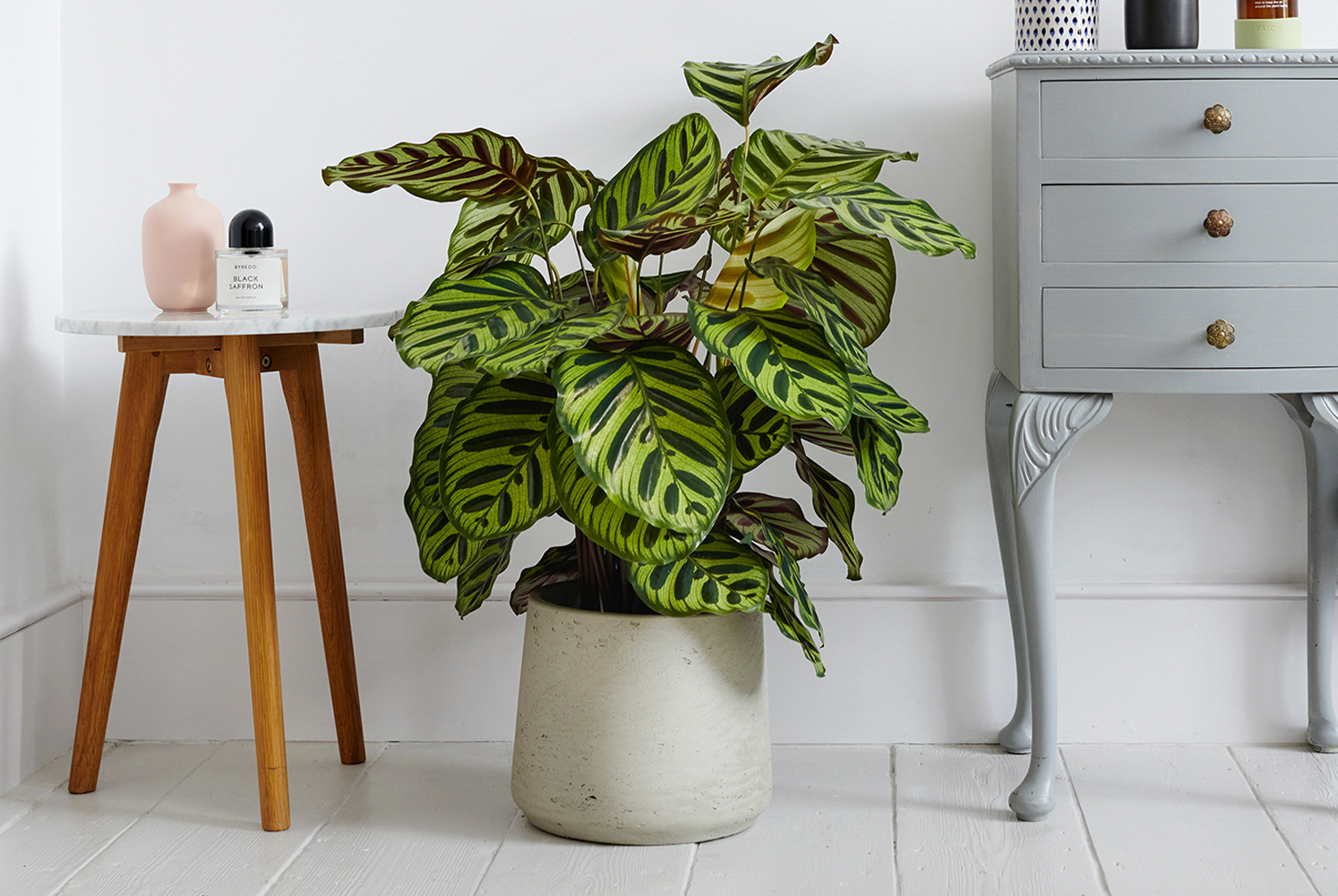
Once you know the basics of Peacock plant care, it will thrive with abundant foliage. Loved by green-fingered enthusiasts for its spectacular leaves, the peacock plant is a sought-after species that will add life and style to your home.
Its requirements are similar to those of the prayer plant. In fact, if you know how to care for a prayer plant, you'll ace it. The peacock plant, also known as Calathea Makoyana, is a type of prayer plant, of which there are around 60 known types. Most belong to or are related to the Calathea plant family.
'Peacock plants are a truly special plant, and grow in a stunning variety of colours that can be a showstopper in any room,' says Richard Cheshire, Plant Doctor at Patch. 'These plants not only look interesting, but they also move, raising their leaves and stems vertically when the sun sets and spreading them open again as the day begins.'
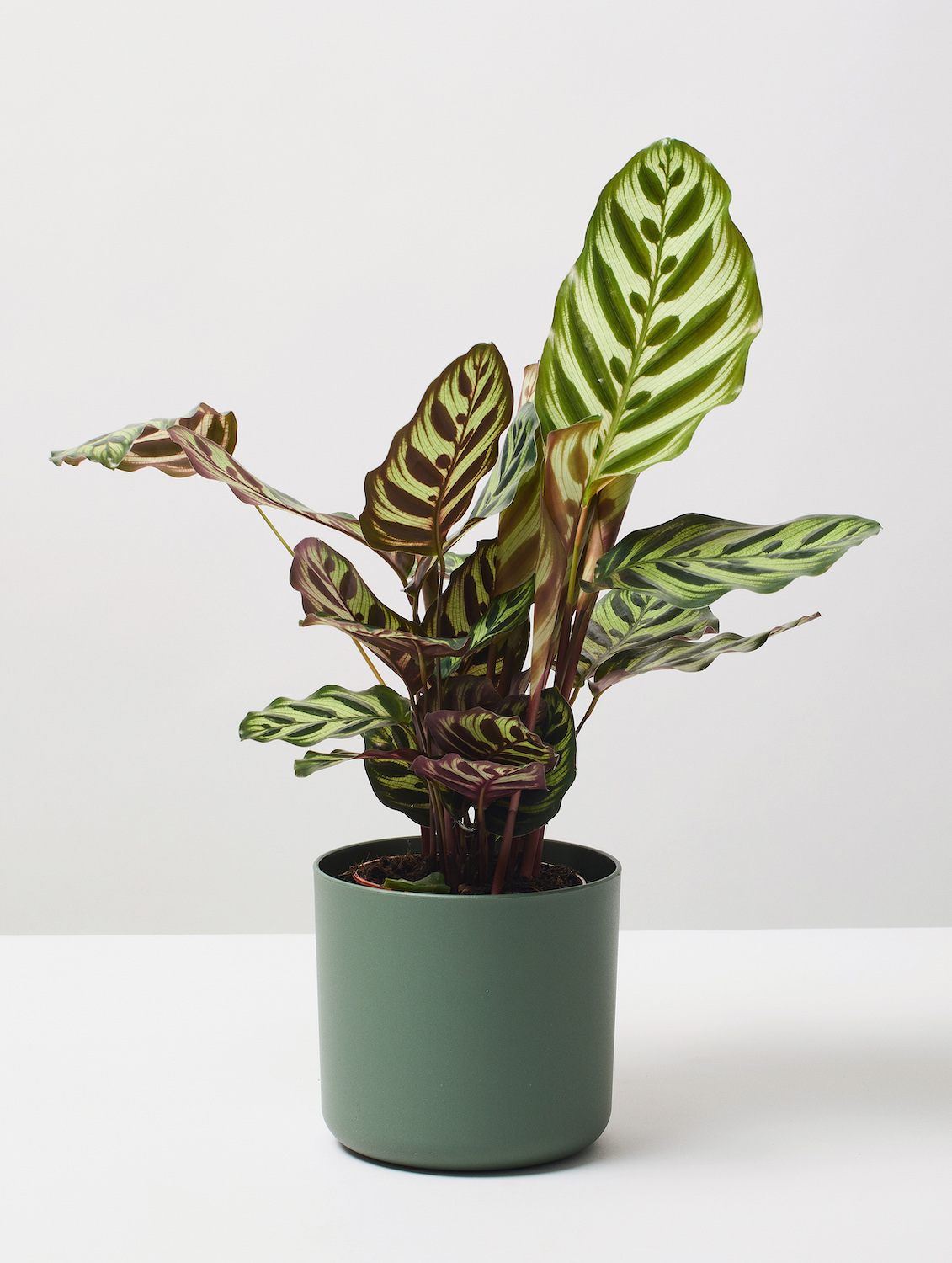
How to care for Peacock plants
1. Ensure they have humidity
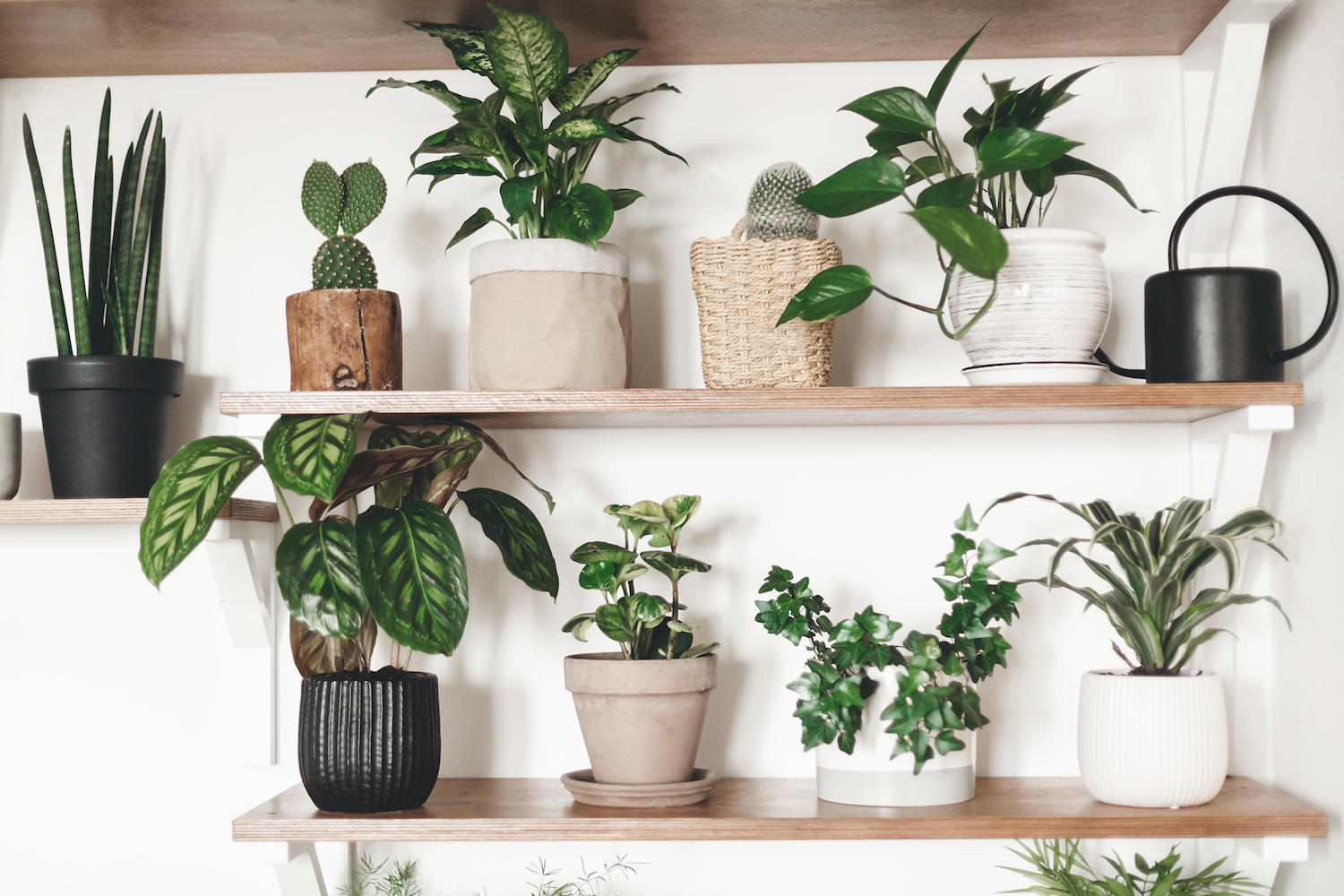
Peacock plants, like prayer plants, are native to Brazilian rainforests and thrive in warm, humid conditions out of bright sunlight.
'Calathea Makoyanas have striking foliage likened to the dramatic look of a peacock’s tail but unlike the Maranta leuconeura, the peacock plant will grow taller with leaves on slender stems,' says Jemma Charman, co-founder of Green Rooms Market.
'They need to have a high level of humidity; without it their leaves can get crispy with brown edges. Grouping humidity-loving plants together can be beneficial, within a steamy environment like a bathroom. Alternatively, using an air humidifier will help to keep your peacock plant happy.'
2. Don't let their soil dry out
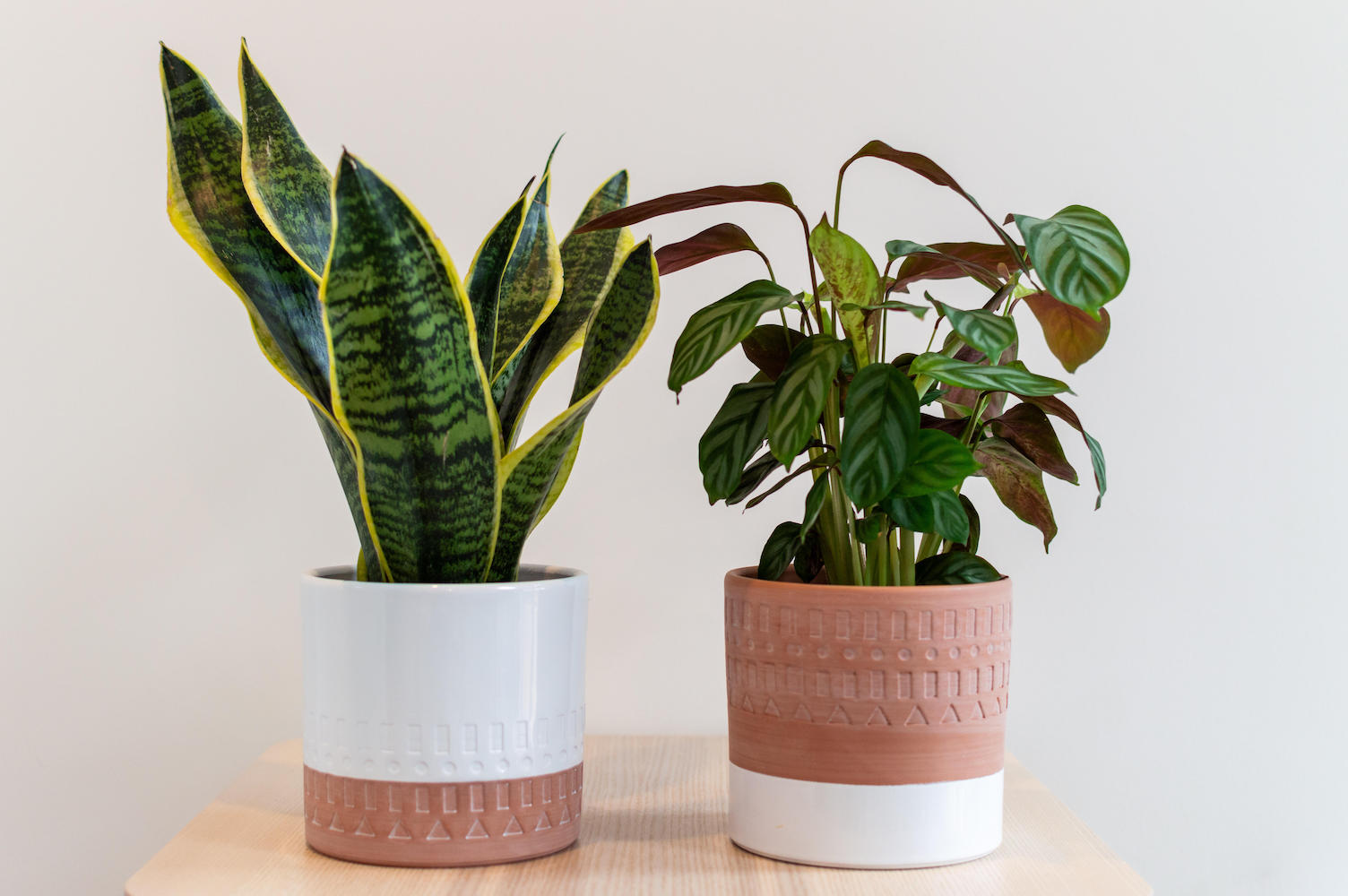
A peacock plant's soil should be kept moist but not wet at all times - so water them little and often.
The Livingetc newsletters are your inside source for what’s shaping interiors now - and what’s next. Discover trend forecasts, smart style ideas, and curated shopping inspiration that brings design to life. Subscribe today and stay ahead of the curve.
'This plant is not very drought tolerant, and extended periods of dryness will cause leaf edges to brown,' says Leaf Envy's Beth Chapman.
'When it comes to watering, check the soil weekly and water evenly around the topsoil when the top two inches are dry,' says Richard Cheshire.
'It's best to keep the soil moist, but not sodden,' adds Jemma Charman, Green Rooms Market. 'You can try bottom-watering, leaving the plant to soak up water from a tray below the pot for several minutes until the soil feels damp but don’t leave them for hours.'
3. Feed them filtered water or rain water
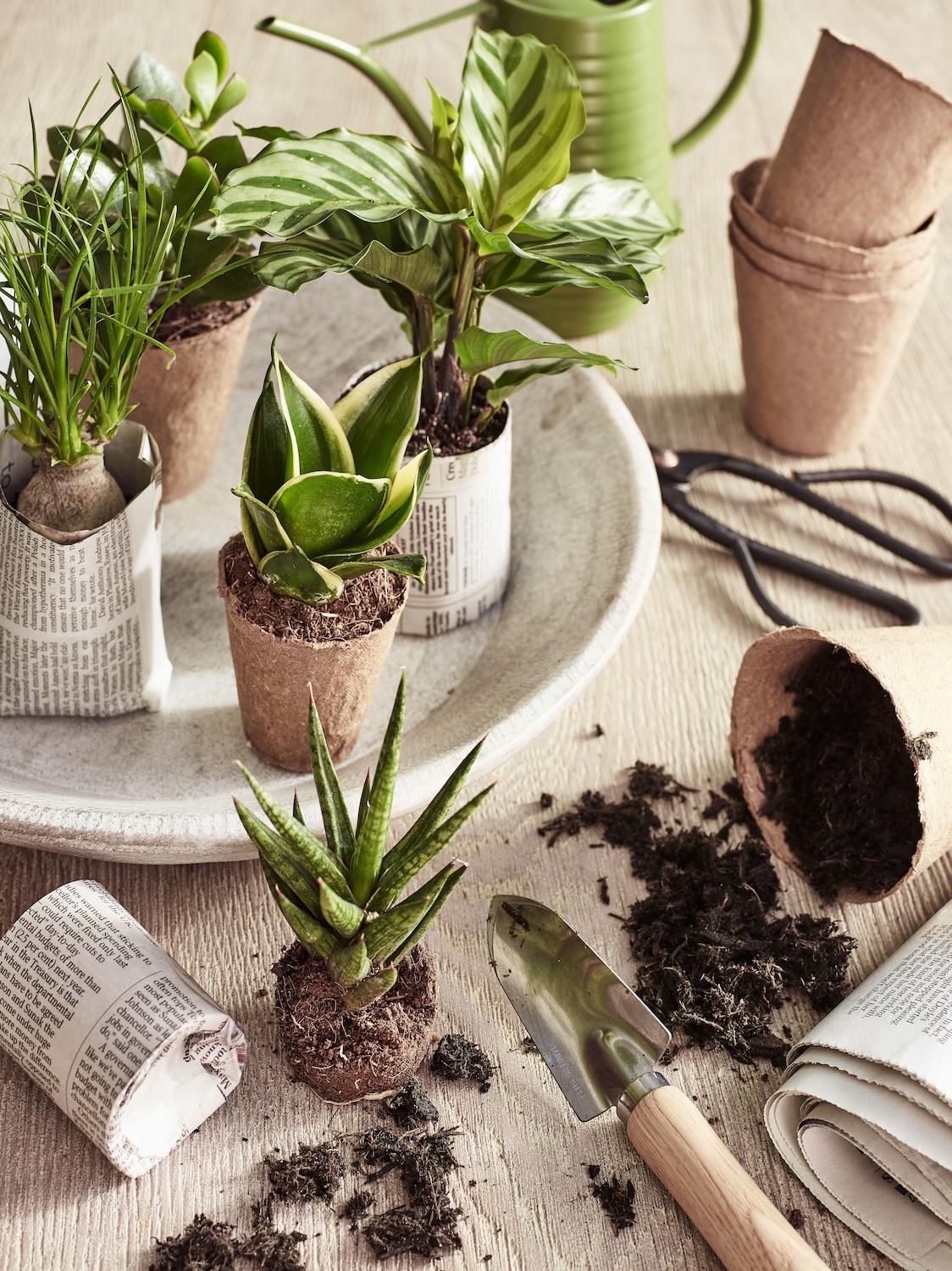
'Peacock plants are a little fussy when it comes to water and although it's not essential, it is best to use filtered where possible,' says Maddie, plant manager, The Stem.
'If you live in an area with hard water, this can cause problems,' explains Patch's Richard Cheshire. 'Either use filtered water or water that has been ‘aged’ in some way.
'Leaving a full watering can to sit overnight will dissipate any harsh minerals from hard water and keep the color of your peacock plant looking fresh.'
'Room temperature rain water will be more beneficial rather than tap water,' adds Jemma Charman.
4. Place them where there is light and shade

This plant will be happiest in a bright spot, though not in direct sunlight, as this burns their leaves.
'Peacock plants should be kept out of direct sunlight,' says Maddie from The Stem. 'A bathroom or kitchen, where they’ll benefit from the humidity created from showering or when cooking is good.'
'Calatheas thrive in medium, indirect sunlight but can tolerate lower light levels too,' adds Beth Chapman.
5. Wipe its leaves with a damp cloth
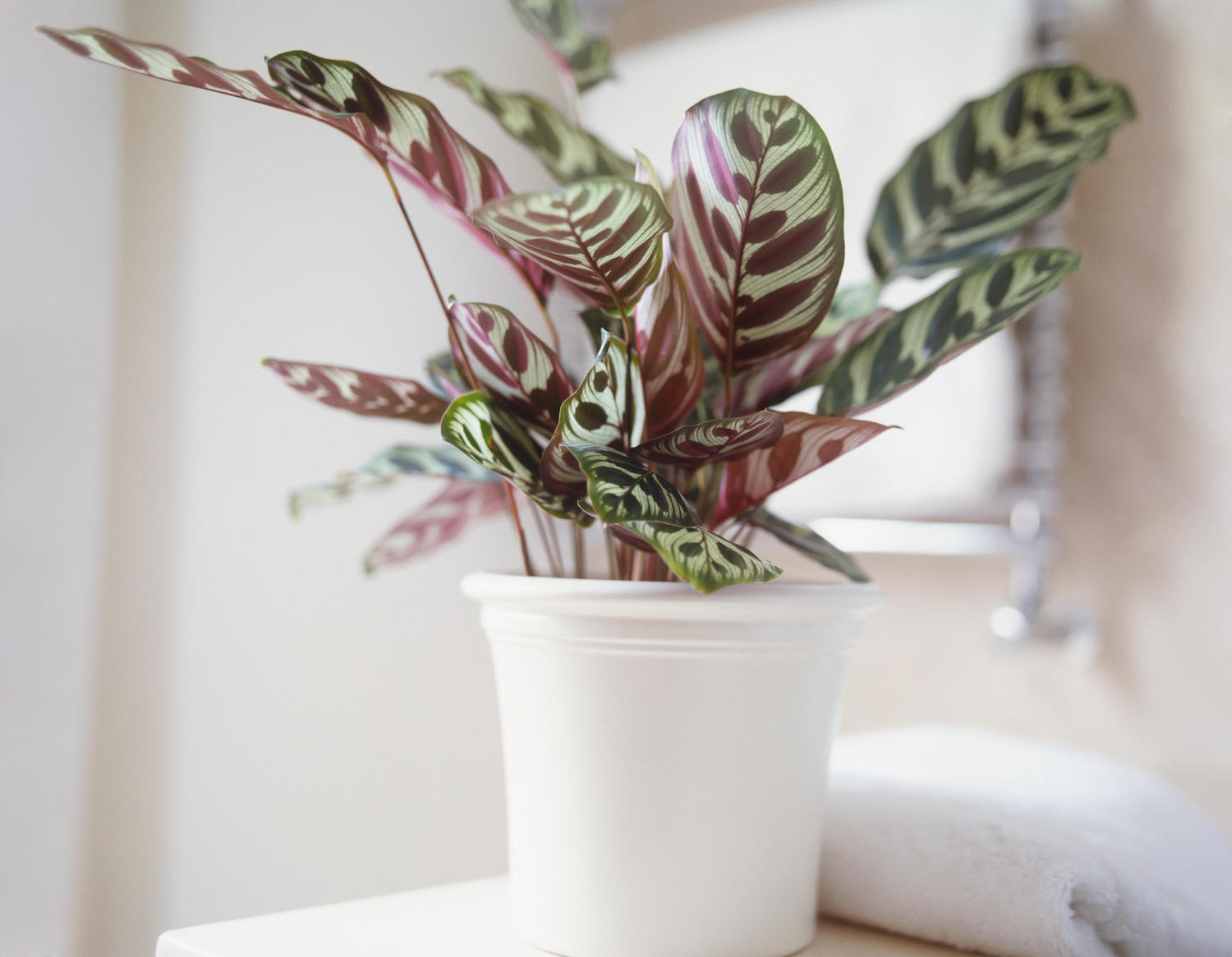
Those who were paying attention in biology lessons will remember that plants need to be able to photosynthesize. Peacock plants, like any other indoor foliage, will struggle to thrive if their leaves are dusty.
'Restore their leaves’ natural shine by dusting her with a wet cloth,' says Beth Chapman.
'Wiping the Makoyanas' leaves with a damp soft cloth will keep them dust-free and help them to photosynthesize,' says Jemma Charman, co-founder of Green Rooms Market.'
6. Mist regularly
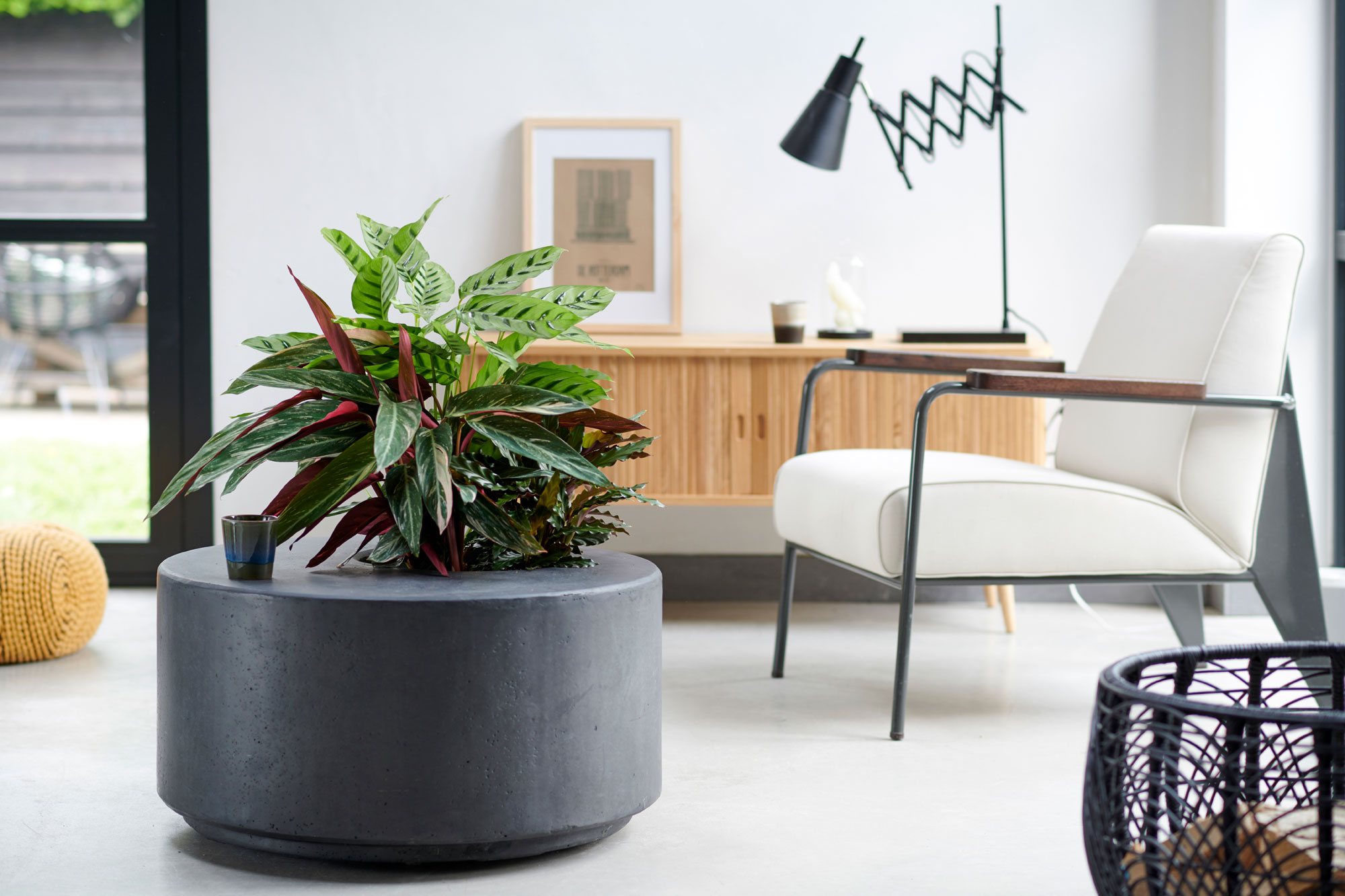
'To mimic the humid conditions of their natural habitat, peacock plants enjoy being misted with water frequently,' says Maddie at The Stem.
'Mist every couple of days to keep your peacock plant’s leaves moist and green,' says plant doctor Richard Cheshire
Is Calathea Makoyana easy to care for?
As long as you're prepared to care for it and give it what it needs, it's easy. Although if you have a tendency to forget to water your plants or don't have the time to tend to them, you might be better off with something more adaptable or lower maintenance.
Are Calathea Makoyana's pet friendly?
Yes, like their cousin, the prayer plant, Calatheas are non-toxic and suitable for homes with small children and pets.
Why has my Peacock plant got brown tips?
'Yellowing leaves and burnt tips suggest your plant has been scorched by direct sunlight or watered with tap water containing high levels of fluoride,' says Beth Chapman from Leaf Envy.
'Limp, drooping leaves which are brown and curling suggests your plant is thirsty and dry. Increase the humidity by regularly misting, and make sure you are watering weekly, but allowing the soil to drain properly, and the top 2 inches of the soil to dry out before the next watering session.'
Jacky Parker is a freelance lifestyle journalist and writer, producing a wide range of features for magazines and digital platforms. She has written for Livingetc and its sister titles, Homes & Gardens and Country Homes & Interiors for more than 15 years, both as a freelance contributor and as Acting Digital Editor and Acting Style Content Editor, regularly reporting on the latest interiors, gardens and wellness inspiration, speaking to experts in their respective fields, and discovering the best tips.
Jacky has also written for other publications, including Sunday Times Style, The Telegraph, Architectural Digest, House Beautiful, ELLE Decoration, Red, Grand Designs and more.